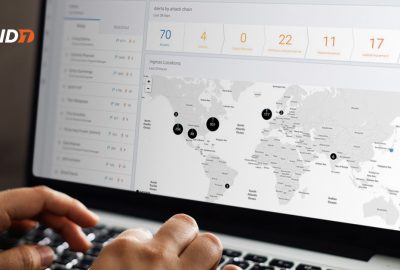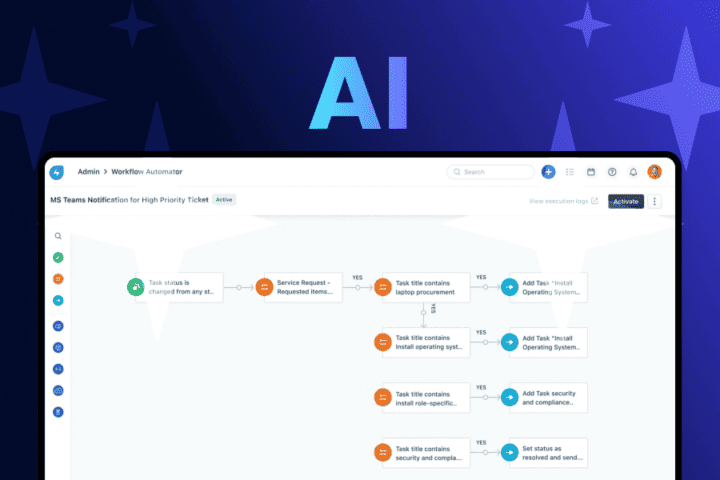
Moving your operations to the cloud reduces operating costs and streamlines your processes, but you shouldn’t rush to hire any provider. Before opting for data migration and the use of applications or other services, consider in detail the cloud-based security measures you will need.
Even if SaaS or PaaS providers have experts to support you on protection issues, 40% of organizations suffer an attack every year. Good network vulnerability and risk management starts with the acquisition of reliable tools to avoid furtive attacks that damage your operation or reputation.
Why have a cloud-based security tool?
As technology evolves, so do cybercriminals in their mission to hijack unsuspecting systems. This circumstance forces today’s companies to rely on sophisticated SIEM solutions. Essentially to protect sensitive information, avoid operational damage, production delays and possible legal repercussions.
Before reviewing in detail the multiple vulnerabilities in an IT environment, we will explain the reasons for having a security tool in the cloud:
Anyone can be a victim of an attack
This is because it is difficult to determine whether public or private cloud can offer different levels of protection. As any company or user is vulnerable, prevention is critical.
Lack of understanding of threats

The escalation in hacker activity is also due to the fact that many companies do not understand latent risks clearly enough. This reduces investment in cloud-based security, escalating cyber exposure and its consequences.
Provider verification needs to be complemented
Even if the contracted SaaS offers you specific security solutions, that’s not enough. If you want to meet minimum industry standards, rely on proven solutions.
Comprehensive protection in one package
It’s critical that you get the right defense, such as data backup, encryption, viewable timeline, authentication with 1 or more factors, data unification, and more.
Surveillance cannot be absent
Monitoring the behavior of users and endpoints will be the key to discovering possible failures in your system. In addition, with the right tool you will be able to control access and abuse of privileges.
Vulnerabilities driving cloud-based security
Much of the problem of modern organizations have to do with the progressive increase of devices connected to corporate networks. Most employees use equipment such as laptops, tablets, smartphones and other types of connections that put infrastructure at risk. As long as internal security is compromised, it makes it easier for hackers and their malicious infiltration strategies to work.
As well as implementing strict policies and regulations with the support of your IT department, these must be based on avoiding the main vulnerabilities:
Committed operating systems
This happens because there are so-called bugs or glitches that allow hackers to exploit these operational weaknesses. The failure to correct these malfunctions opens the door for cyber attackers to infiltrate to steal sensitive information, interrupt operations and, in the worst case, take control of the system.
Inadequate management of accesses and accounts
When identity problems, employee credentials or passwords cause confusion, you are facing an imminent disaster. This “innocent” problem is one of the most common ones and causes gaps that hackers take advantage of to decipher the security filters in the cloud, damaging your business infrastructure.
Poorly protected APIs
 An important part of cloud-based security depends on the programming interfaces offered by vendors to use or build applications. These definitions and working protocols are a distinctive feature of these platforms, therefore you should evaluate the protection standards that computer experts promote.
An important part of cloud-based security depends on the programming interfaces offered by vendors to use or build applications. These definitions and working protocols are a distinctive feature of these platforms, therefore you should evaluate the protection standards that computer experts promote.
Total or partial loss of data
Information backup is a basic measure when dealing with systems that may be victims of an attack. However, natural catastrophes or involuntary human negligence can also cause the loss of data, an inconvenient situation when there is relevant data from the company or a client.
Inadequate risk management
When there is inefficient planning when contracting services in the cloud, you are exposed to the most recurrent incidents related to cyber-attacks. In this case, specialists recommend creating a checklist, evaluating the technologies offered by SaaS or PaaS, making an in-depth analysis of possible risks and an agenda that specifies how to proceed in this situation.
Cloning or account theft
It is common for cybercriminals to use social engineering techniques to get access to information from unwary employees. This represents all sorts of risks, such as data manipulation, redirecting users to dubious sites, spreading malware or ransomware, and structural damage. This requires staff specialized in cybersecurity or ethical hacking to improve internal security.
Attacks within the organization
It is possible that an IT administrator within your staff decides to take advantage of their condition and access facilities to take advantage of the company. Although less common, it can lead to significant theft of critical information. In addition to a culture of information security, big data trained personnel and reliable cloud-based security tools such as Rapid7 SIEM, you should wisely choose your service provider.
Why rely on a SIEM solution like Rapid7 InsightIDR?

Focused on proactive and efficient data correlation, this program controls unimportant notifications and concentrates on analyzing the behavior of connected users to obtain security data within your systems. Among Rapid7 InsightIDR‘s main advantages, it is worth mentioning:
- Very easy to use and master.
- Surveillance of vulnerable endpoints.
- Adequacy through behavior analytics.
- Compliance with standards and regulations.
With more than 15 years in the market in GB Advisors know well the real cyber threats and the most frequent operational problems within organizations. This has led us to offer tools to reduce cyber exposure and solutions for information management and security events (SIEM), designed to strengthen your infrastructure on virtual platforms.
If you want to improve cloud-based security in your business, we have different support plans for your needs. Contact us, our team of IT specialists will install, configure and customize Rapid7 InsightIDR, and answer any questions you may have about our services or products.



